Grass of Grace: How Pasture Reseeding Fosters Community Resilience in Turkana’s Eskiriait Village
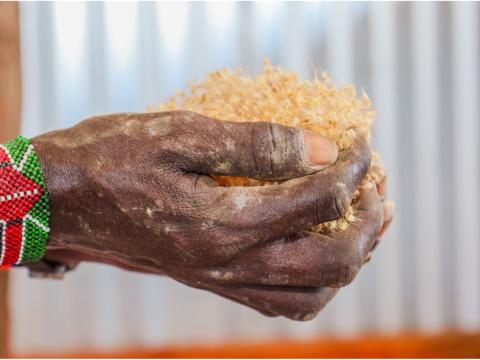
It is 2:30 PM on a sweltering Thursday afternoon. In Turkana, a traditional dance often marks the beginning of the day’s activities. However, today’s gathering in Eskiriait village is different. Instead of traditional herding sticks, 48-year-old Benson Etabo, the group chairman, leads a 15-member team equipped with farming tools such as sickles and rakes. The team heads towards their 12-acre pasture farm, managed by the Nayokmon Environmental Rangeland Management Group.
Men, women, and youth have come together with a common purpose: to harvest the thick grass they have nurtured over several months in their pasture plot. Drawn from Elelea, Eskiriait, and Kangura villages, this group was formed to help their households reduce dependence on humanitarian aid through climate resilience initiatives.
“This is a unique group composition because we have men, women, and youth working together, bringing diverse ideas that benefit our development. This contrasts with our conventional community norms, where men, boys, and women rarely meet for the same purpose,” says Mr. Etabo.
Desertification poses a significant threat to communities living in drylands, affecting both settlements and livelihoods. This community has faced severe famine exacerbated by climate change and conflict, often travelling to the nearby Kalobeyei refugee settlements in search of water.
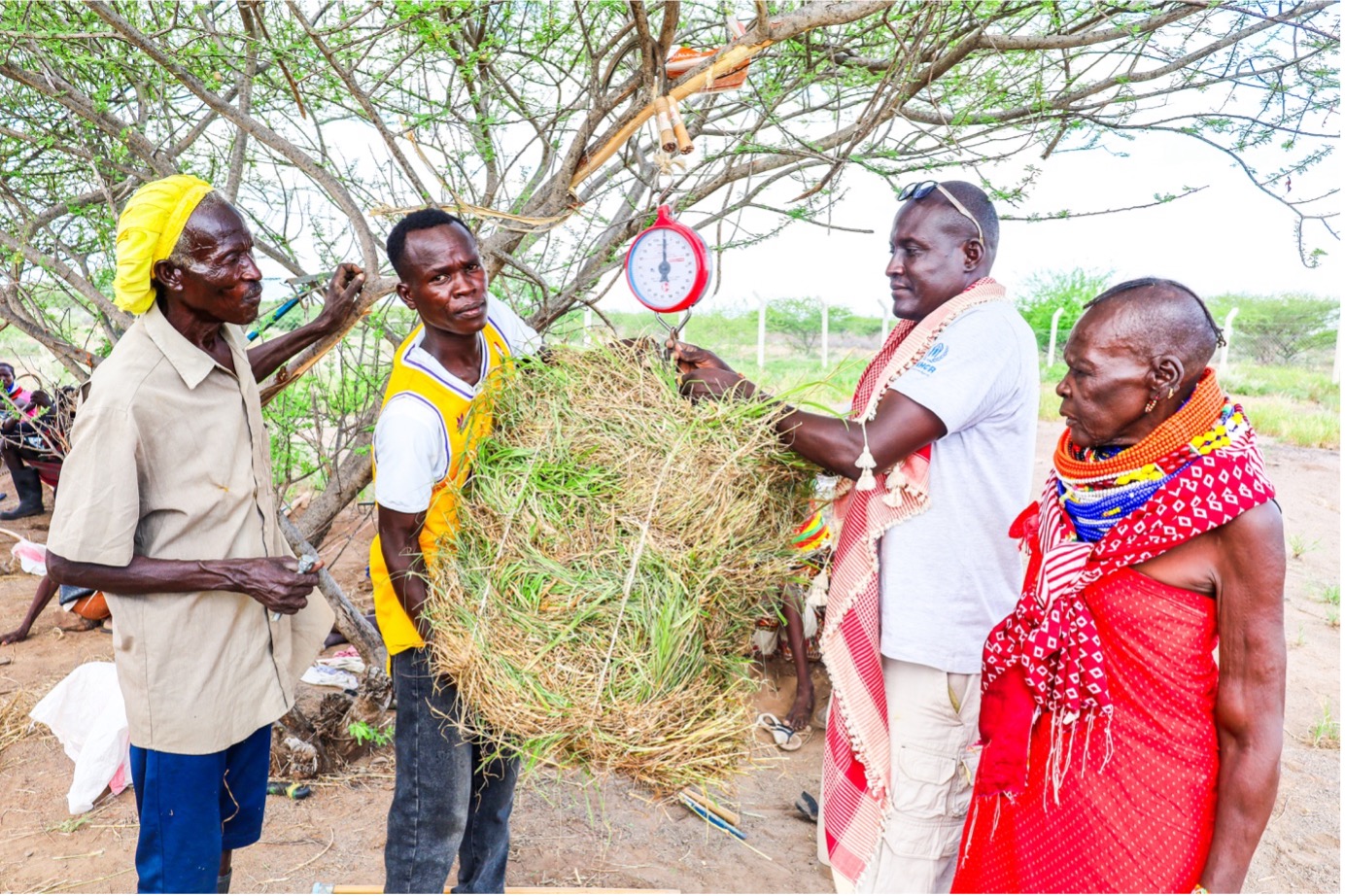
he lack of pasture also forced men and boys to travel long distances, sometimes staying away from their families for months to feed their livestock. "We can no longer rely on traditional rainfall patterns; the more erratic the rainfall, the more vulnerable we become. We have lost livestock, our only source of income. The current climate crisis has hit us hard," Mr. Etabo explains.
The nomadic pastoral lifestyle also profoundly impacted children, many of whom were denied the right to education as their families migrated in search of water and pasture. Children attending Eskiriait Early Childhood Development Education (ECDE) and Primary School, which has a population of over 600, missed classes due to the need to cover long distances to fetch water.
To address these challenges, World Vision, through the Kalobeyei Integrated Drought Response and Management (KDREAM) Project, funded by the Korea International Cooperation Agency (KOICA), partnered with the Turkana County Government to support this group.
In collaboration with the county government, World Vision facilitated the formation and registration of a Natural Resource Management (NRM) Committee. The organization provided training on the land enclosure, seed sowing, and hay harvesting and storage. These NRM Committees are responsible for protecting and sustainably using the revived rangelands. “Besides being supported to form a group, we were taught how to plant grass, harvest its seeds, and properly store hay for future use,” Mr. Etabo says.
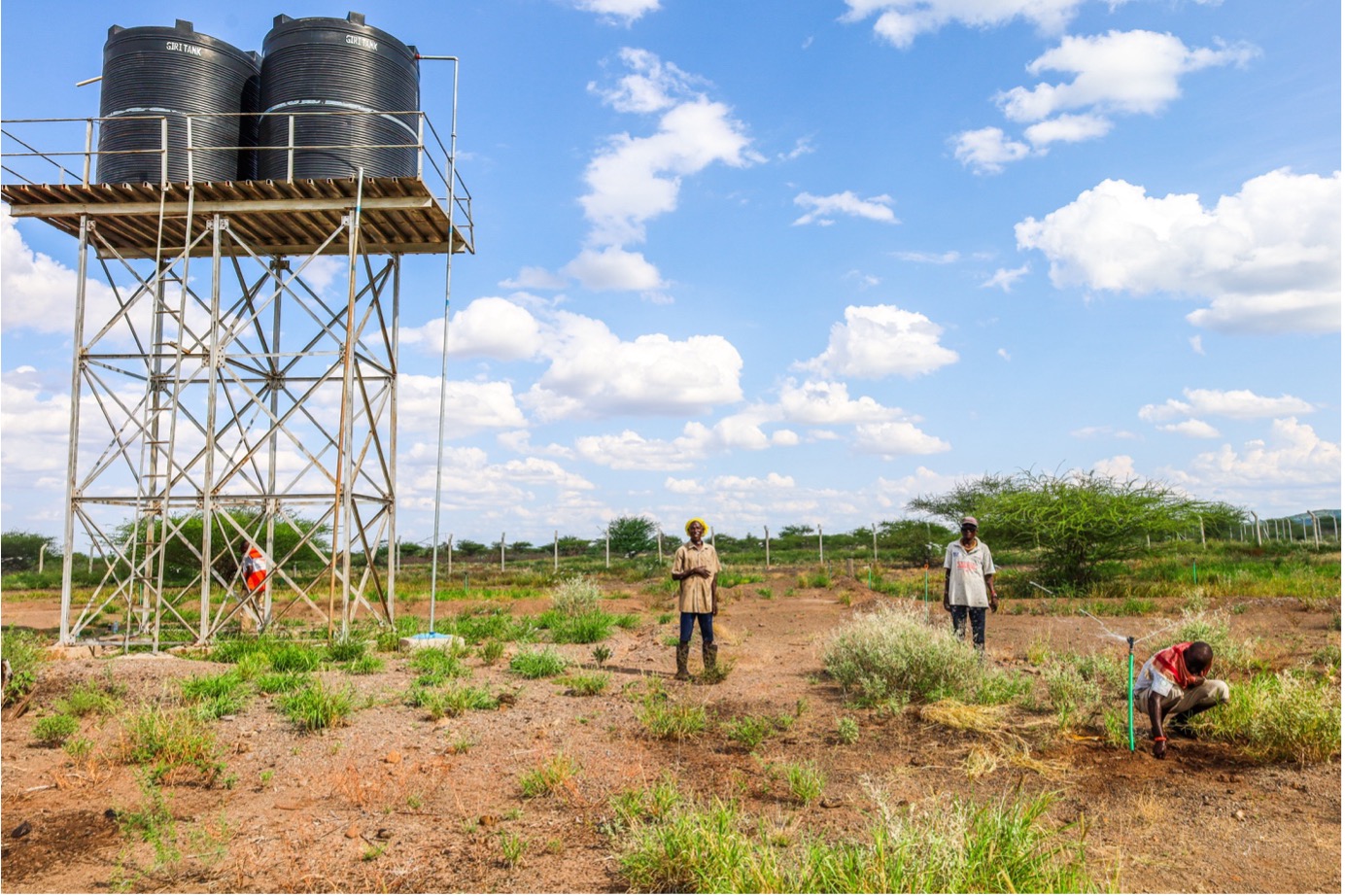
The KDREAM project has supported various groups in developing grazing and monitoring plans, as well as sensitising this pastoral community on the importance of good rangeland management. Community-based NRM Committees are key to managing these rangelands and mapping their resources.
By reseeding degraded rangelands, World Vision is helping communities increase the availability of livestock pasture, a highly contested natural resource among pastoralists. Competition for resources had previously aggravated conflicts in this region, as most community members relied on their livestock for livelihoods.
“Today, we have enough grass; we no longer waste time traversing rugged terrain in search of natural resources like pasture, water, and vegetation, which were major sources of conflict,” Mr. Etabo notes.
To address the water shortage, World Vision constructed a water kiosk with a cattle trough and two 10,000-litre tanks. The project also laid a 3.6 km pipeline system with sprinklers in the pasture plot to ensure a regular water supply to the grass. A chain-link fence encloses the pasture plot. This water infrastructure supplies water to Eskiriait ECDE school, saving the community from the agony of searching for water for domestic and livestock use.
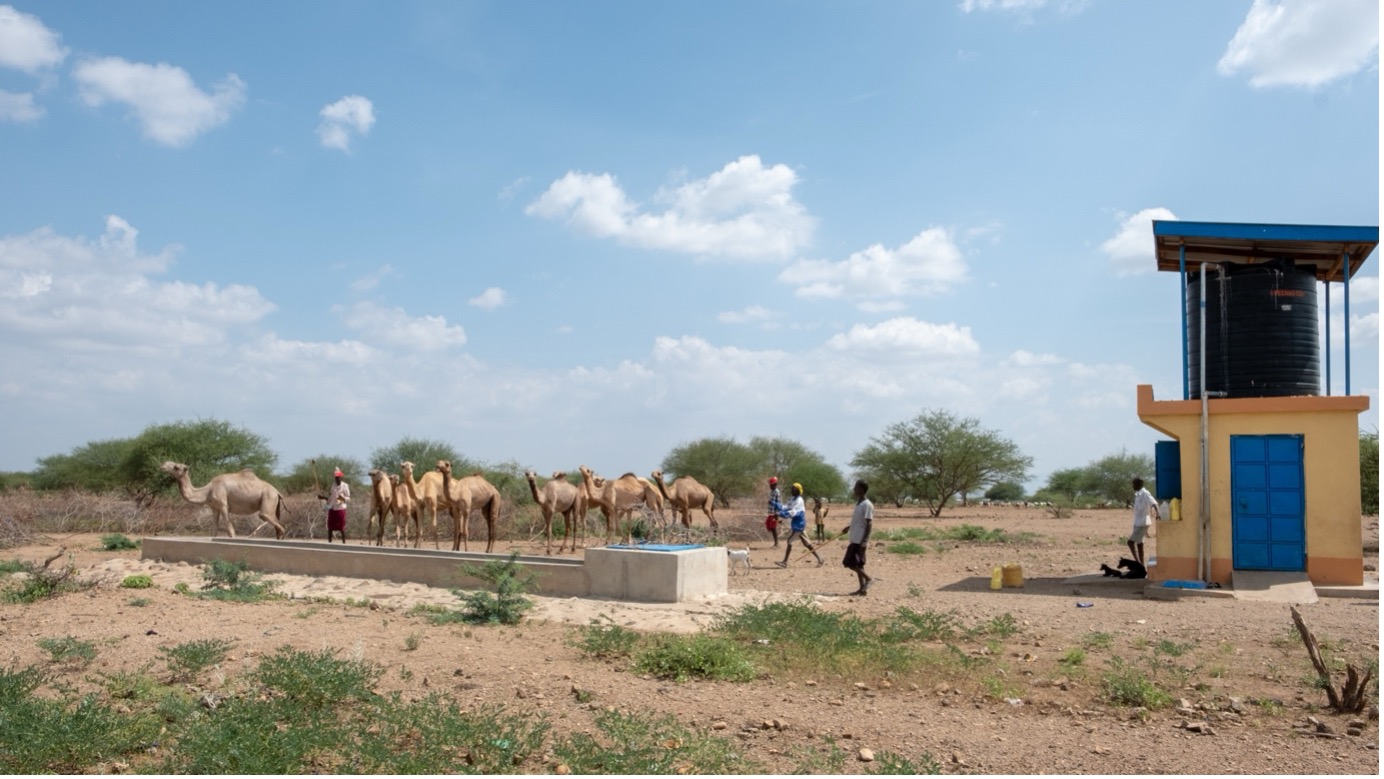
Grass has created employment. The group embraced the training, and now they have enough grass for their livestock and can sell pasture and seeds to other farmers for additional income.
A bale of hay costs Ksh. 300, while a kilogram of seeds costs over Ksh. 1,200. Mr. Etabo reports that this has transformed many families, providing them with an alternative source of income as livestock keeping is no longer reliable due to drought.
The group members also benefited from Empowered Worldview sessions organized by World Vision. These sessions have instilled hope and inspiration in the community and encouraged a shift away from dependency mindsets.
Thomas Ekiru is among the young people in this group who benefited from World Vision's Empowered Worldview. After completing these training sessions, he was identified and engaged as a community mobilizer and trainer of trainers. He now leads other youth in his community, championing climate justice and driving positive change rather than relying on relief aid.
By involving young people in the climate justice discourse, World Vision is nurturing a youthful generation of environmental conservation champions. These young leaders are at the forefront of climate change mitigation and adaptation, a crucial aspect of the KDREAM project's sustainability.
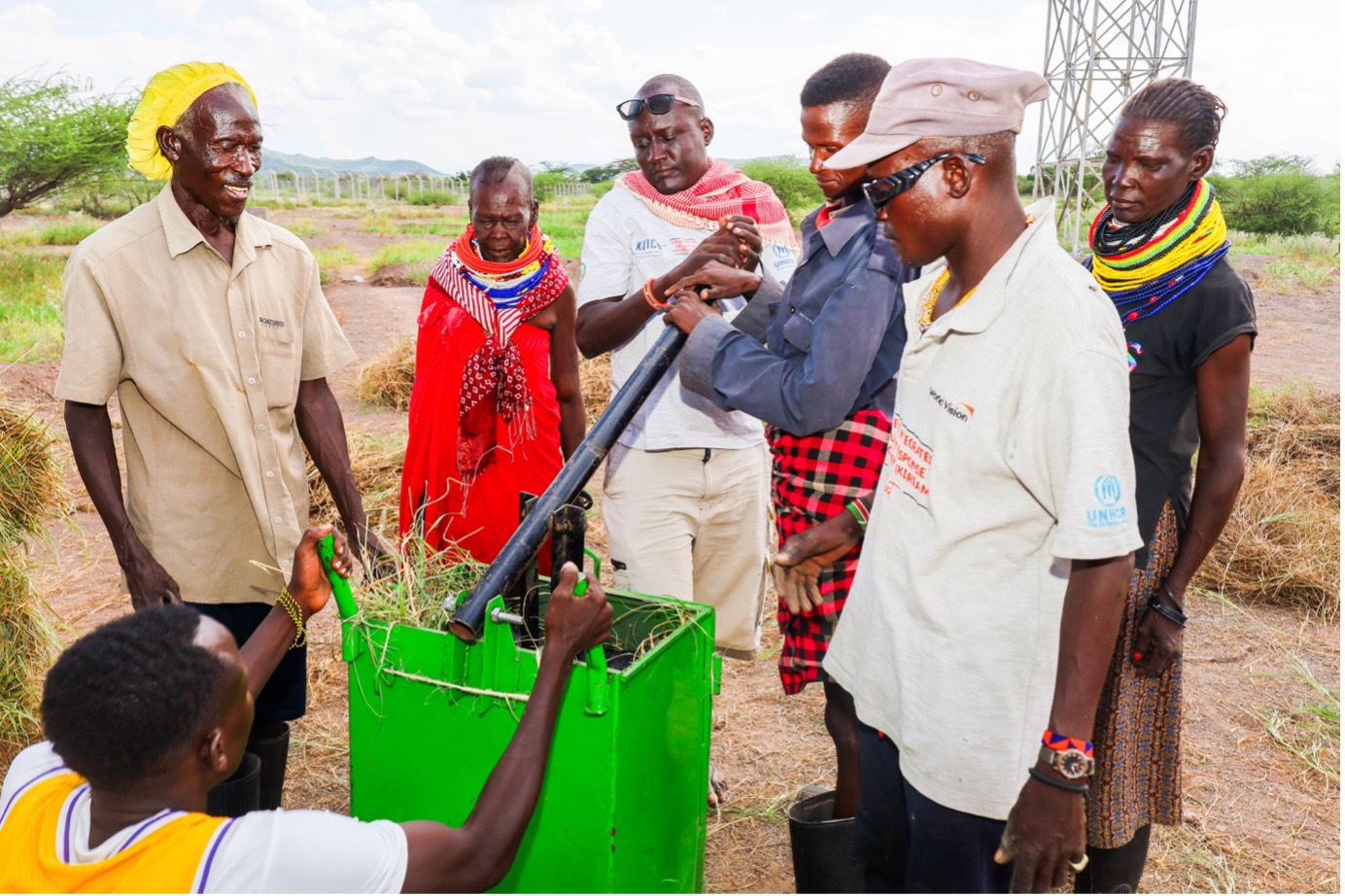
Members of the Nayokmon Environmental Rangeland Management Group have come together to mobilize resources to construct a house to store grass and dry the harvested.
This project supports communities in enhancing rangeland and grassland management for improved livestock production and productivity. Pasture reseeding in these vast rangelands within arid and semi-arid lands (ASALs) helps preserve pasture, regenerate it, and develop grazing plans that benefit both people and the environment.
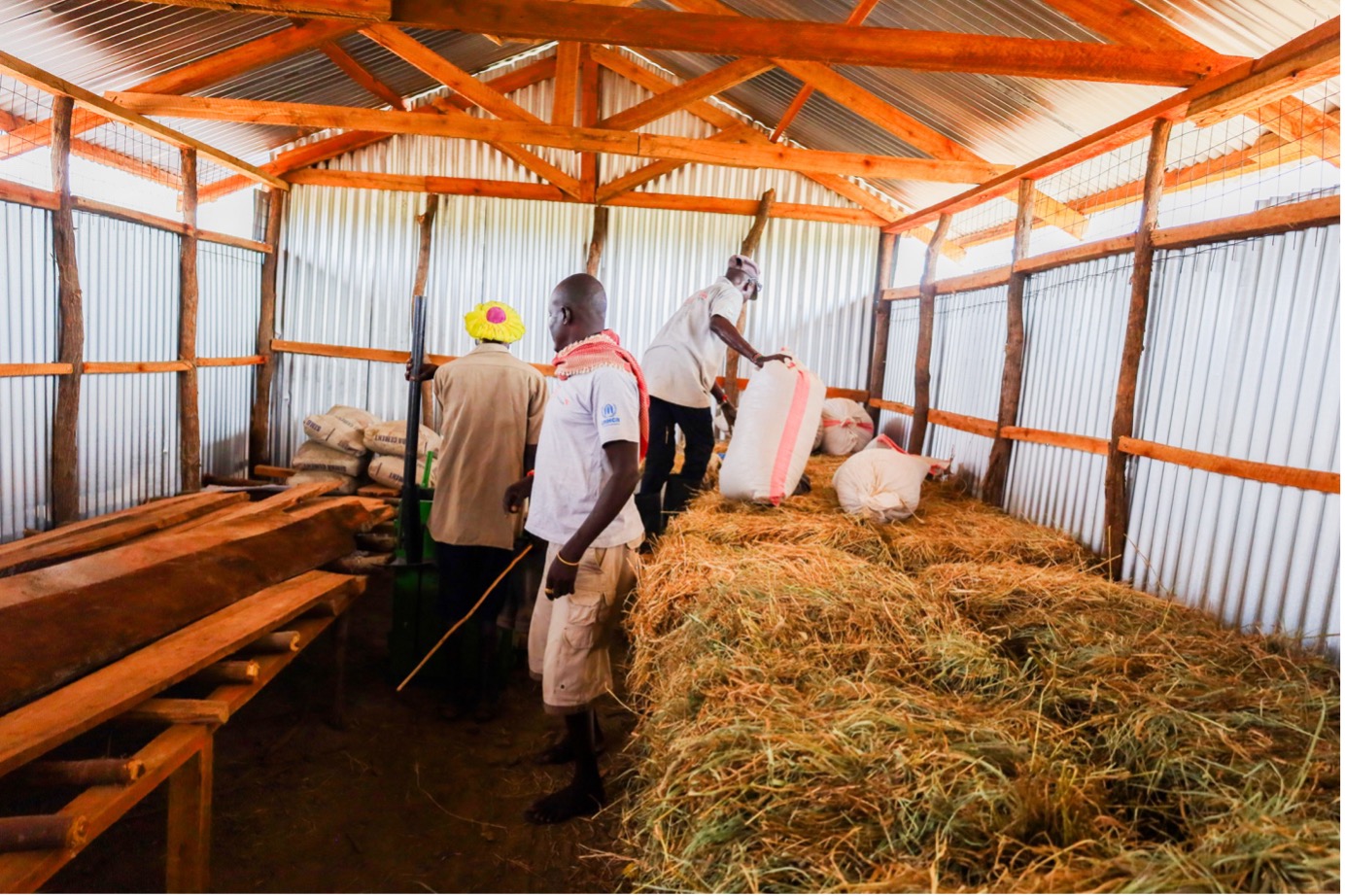
By Felix PiliPili, Communications Specialist, World Vision Kenya